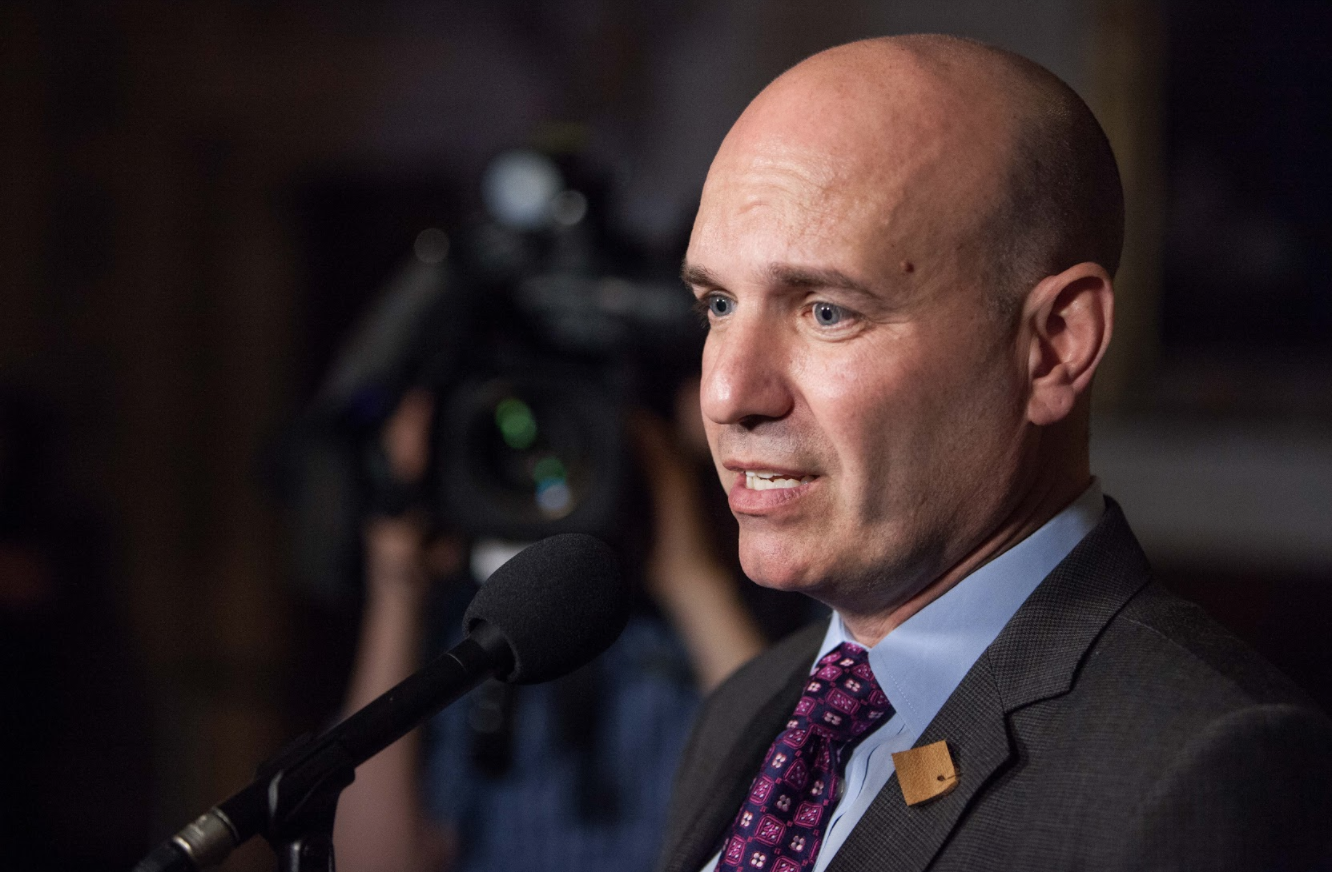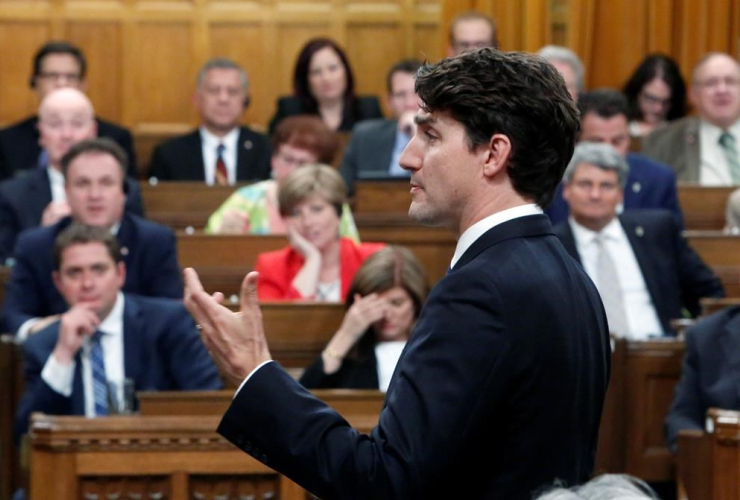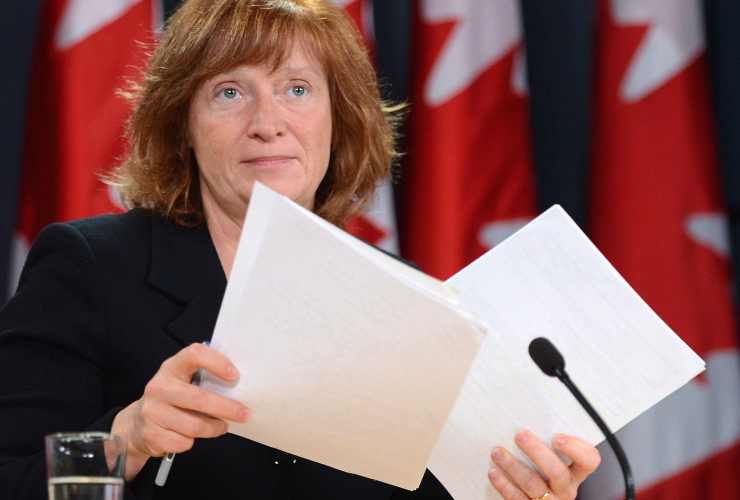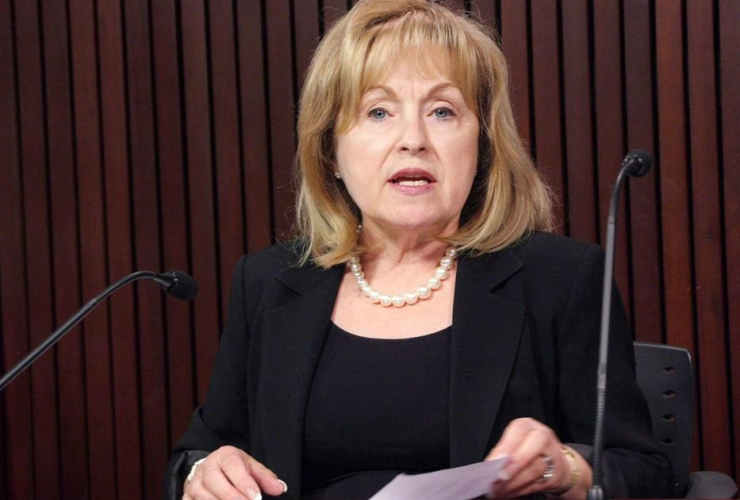New Democrats are proposing a change to parliamentary rules aimed at ensuring only non−partisan individuals become the independent watchdogs who oversee crucial activities such as government spending, ethics, lobbying and federal elections.
The NDP will use an opposition day Tuesday to move push for a multi−party committee to give its approval to anyone nominated by the government to be an officer of Parliament.
The motion, which will be put to a vote on Wednesday or Thursday, comes as the government is scrambling to repair the damage inflicted by Prime Minister Justin Trudeau’s first pick to fill one of the watchdog roles — fellow Liberal Madeleine Meilleur as official languages commissioner.
Meilleur, a former Ontario cabinet minister who has donated to both the federal Liberal party and Trudeau’s leadership campaign in the past, withdrew her candidacy last week after weeks of fierce criticism about her partisan ties to the government she was supposed to hold to account.
Trudeau was also denounced for failing to properly consult opposition parties about his choice, as legally required for officers of Parliament.
NDP ethics critic Nathan Cullen says his party’s proposed change is an "elegant solution" that gives the government an opportunity to recover from the Meilleur mess and ensure it’s never repeated.
And it would be simple to implement immediately — an important consideration given that Trudeau has four other watchdog positions to fill, in addition to the still−empty official languages commissioner’s slot, which has already been vacant for six months.
The chief electoral officer’s position has also been vacant for six months and Trudeau has extended information commissioner Suzanne Legault’s term for six months as he searches for a replacement by the end of the year.
Last week, Trudeau gave a third six−month extension to the terms of the ethics and lobbying commissioners, Mary Dawson and Karen Shepherd, both of whom were set to leave in the next few weeks.
The Meilleur fiasco would have been "a hundred times worse if we were talking about the chief electoral officer or the ethics commissioner," Cullen said in an interview.
"In a sense they’ve screwed this up but we’re fortunate that it wasn’t somebody who’s running our next elections. So let’s not do that again."
The NDP’s proposed change would apply to the eight watchdogs generally considered officers of Parliament: auditor general, chief electoral officer and commissioners of ethics, lobbying, information, privacy, official languages and public sector integrity. It would also apply to the parliamentary budget officer, clerk of the House of Commons and chief parliamentary librarian.
Once the government settled on a nominee for any of those roles, the name would be sent in confidence to a special committee composed of one MP from each of the recognized parties in the Commons and chaired by the deputy Speaker. The committee would deliberate in camera and recommend whether the nomination be rejected or accepted.
A rejection by the committee would be final. An accepted nomination would be put to a vote in the Commons.
Cullen predicted that such a process — done in private by a committee that no one party controlled — would "elevate" the quality of appointments and protect the integrity of the independent watchdog roles.
Whether the Liberals will support the change remains to be seen.
They have appeared somewhat chastened in the wake of the Meilleur furor, with a senior government source acknowledging to The Canadian Press that it’s been a challenge finding watchdogs from the small pool of individuals who have the necessary qualifications and are willing to play a highly visible — and sometimes controversial — role.
As well, Trudeau is expected to send letters to opposition leaders this week, asking for their advice about who should be consulted on the next ethics and lobbying commissioners and urging them to encourage potential candidates to apply.
Still, as recently as Friday, government House leader Bardish Chagger was continuing to argue that past political involvement shouldn’t automatically disqualify an individual from becoming an officer of Parliament.





Comments